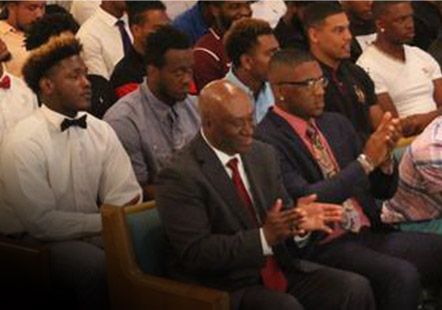Advent Devotional
Philippians 2:5-11
5 In your relationships with one another, have the same mindset as Christ Jesus:
6 Who, being in very nature God,
did not consider equality with God something to be used to his own advantage;
7 rather, he made himself nothing
by taking the very nature of a servant,
being made in human likeness.
8 And being found in appearance as a man,
he humbled himself
by becoming obedient to death—
even death on a cross!
9 Therefore God exalted him to the highest place
and gave him the name that is above every name,
10 that at the name of Jesus every knee should bow,
in heaven and on earth and under the earth,
11 and every tongue acknowledge that Jesus Christ is Lord,
to the glory of God the Father.
The season of Advent commences the Christian year by summoning us to reflect on the coming of Jesus Christ—through his birth, second coming, and acceptance into the hearts of believers.
Today’s reading forces us to slow down our reading and acknowledge the immeasurable humility that Jesus displayed through his first coming. In the middle of Paul’s love letter to the church at Philippi, he paints a portrait of Christ’s descent from glory into the squalor of humanity for the price of redemption.
Through this vicarious act of love, Jesus denudes himself of respectability, riches, and reputation. Through the humility of Christ’s service to humanity, God reveals Christ’s Lordship and glory throughout the world.
We live in a world fraught with individualism, consumerism, and materialism. Social media consistently serves as the catalyst to distorted depictions of success. A thirst for opportunity has replaced the Christian virtue of obedience. A quest for popularity has replaced communalism with individualism to the point that following our dreams has caused us to forget the disinherited.
The beauty of Jesus’ first coming is his subtle entry into the world. He does not come through the regality of Tiberius. He is not born in a pristine palace with servants flanked around him. No, our Lord and Liberator comes to us in a feeding trough—or a more accurate translation, a “donkey dish.” The putrid smell of barn life would have offended our American-social class sensibilities.
Since Jesus comes to us this way, today’s reading forces us to ask ourselves whether we, the church, are coming into the same places that Jesus went? Are we meeting with the marginalized? Are we bringing opportunity to the outcasts? Are we being a beacon of hope to the hopeless? May we imitate the witness of Jesus during this season of Advent by coming into the world like him.
By: Rev. Dave Young Jr.



